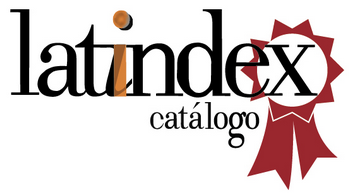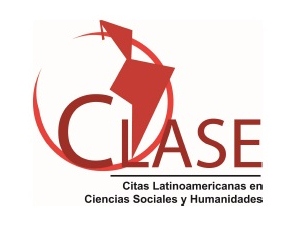Estrategias de argumentación filosófica y presuposición erotética. Un enfoque dialéctico
Resumen
El artículo presenta un enfoque dialógico aplicado al análisis de estrategias argumentativas en filosofía y examina el caso de la estrategia de búsqueda de presuposiciones erotéticas y preguntas auxiliares. Tiene cuatro apartados: en el primero, se defiende la necesidad de un nuevo enfoque para analizar la argumentación filosófica; en el segundo, se expone un enfoque dialógico aplicado a estrategias argumentativas (DAAS), que se sirve de conceptos y herramientas del enfoque dialéctico dialógico (Krabbe & Walton, 1995), de la dialéctica argumental de Hubert Marraud (2013, 2020) y de la vasta tradición de dialécticas formales y lógicas dialógicas; en el tercero, se propone una versión dialéctica de la estrategia de buscar presuposiciones y preguntas auxiliares. Por último, en la cuarta, se analiza un ejemplo de búsqueda de presuposiciones y preguntas auxiliares en un texto de Jay F. Rosenberg (1998), en una versión dialógica que registra todos los movimientos dialécticos.Citas
Chang, Ruth. 1997. Incommensurability, Incomparability and Practical Reason. Cambridge: Harvard University Press.
Hamblin, Charles. 1970. Fallacies. Londres: Methuen.
Harrell, Maralee. 2016. What is the argument? An introduction to philosophical argument analysis. Cambridge y Londres: The MIT Press.
Hintikka, Jakko. 1999. Inquiry as inquiry. A logic of scientific discovery. In Jaakko Hintikka selected papers, v. 5: 127-42. Nueva York: Springer.
Krabbe, Erick. C. W. 2003. Metadialogues. In Anyone Who Has a View. Theoretical Contributions to the Study of Argumentation. Eds. F. van Eemeren et al.: 83-90. Kluwer Academic Publishers.
Krabbe, Erick. and van Laar, Jan. 2013. The Burden of Criticism: Consequences of Taking a Critical Stance. Argumentation (2013) 27: 201–24.
Lorenzen, Paul. 1969. Normative logic and ethics. Mannheim: Bibliographisches Institut Hochschultaschenbücher: 236.
Marraud, Hubert. 2013. ¿Es lógic@? Análisis y evaluación de argumentos. Madrid: Editorial Cátedra.
Mackenzie, Jim. 1990. Four Dialogue Systems. In Studia Logica 49: 567-83.
McTaggart, John. 1922. The Nature of Existence, Vol. II. Cambridge: Cambridge University Press.
Novaes, Catarina. 2011. Medieval Obligationes as a Theory of Discursive. Commitment Management. In Vivarium 49 (2011): 240-57.
Passmore, John. 1961. Philosophical reasoning. Nueva York: Charles Scribner's Sons.
Rescher, Nicholas. 1977. A Controversy-Oriented Approach to the Theory of Knowledge. Nueva York: SUNY Press.
- 2001. Philosophical Reasoning. A Study in the Methodology of Philosophizing. Oxford: Blackwell Publishers.
Rosenberg, Jay.1998. Thinking Crearly about Death. Indianapolis: Hackett Publishing Company.
Ryle, Gilbert. 2009. Collected Essays. Collected Papers1929–1968. Vol. 2. Nueva York: Routledge.
Sorensen, Roy. 1998. Thought Experiments. Nueva York: Oxford University Press.
Toulmin, Stephen, Rieke, Richard y Janik, Allan. 1984. An Introduction to reasoning. Nueva York: Macmillan Publishing.
van Eemeren, F.H. van, and R. Grootendorst .1984. Speech acts in argumentative discussions: A theoretical model for the analysis of discussions directed towards solving conflicts of opinion. Dordrecht: Foris.
van Eemeren, Frans H., Grootendorst, Rob & Henkemans, A. Francisca Snoeck .2002. Argumentation: analysis, evaluation, presentation. Mahwah (Nueva Jersey): Lawrence Erlbaum.
van Eemeren, F.H., Houtlosser, P. y A. F. Snoeck Henkemans .2007. Argumentative indicators in discourse. A Pragma-Dialectical Study. Dordrecht: Springer.
van Eemeren, Frans H. 2010. Strategic maneuvering in argumentative discourse: Extending the pragma-dialectical theory of argumentation. Ámsterdam-Filadelfia: John Benjamins.
van Laar, Jan Albert. 2003. The dialectic of ambiguity: a contribution to the study of argumentation. Groningen: s.n.
- 2014. “Arguments that take counter-considerations into account”. En Informal logic 32: 240-75.
Walton, Douglas and Krabbe, Erick. C.W. 1995. Commitment in dialogue: Basic concepts of interpersonal reasoning. Albany: SUNY Press.
Wiśniewski, Andrzej. 1995. The Posing of Questions: Logical Foundations of Erotetic Inferences.
Una vez que un texto es aceptado para su publicación en Quadripartita Ratio, sus autores deben firmar dos documentos de carácter legal: una Licencia de uso y una Declaración de autoría.
Con la Licencia de uso, los autores autorizan la publicación de su obra y la difusión de ésta (integración en bases de datos, difusión en nuestras redes sociales, reediciones posibles, etc.). No obstante, se autoriza la descarga, reproducción y distribución de todos nuestros contenidos publicados, siempre que no se modifique el contenido y se indique su origen (nombre de la revista, volumen, número, páginas y dirección electrónica del documento).
Con la Declaración de autoría, los autores manifiestan que la obra es de su autoría, original e inédita.









